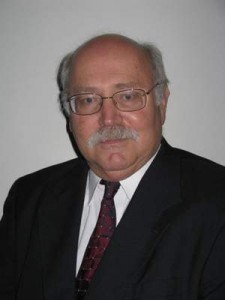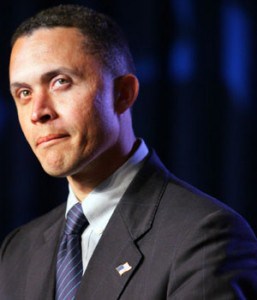 The taxpayers of Ohio spent $13 million to fund a new 100 gigabit institutional fiber network average Ohio residents cannot access.
The taxpayers of Ohio spent $13 million to fund a new 100 gigabit institutional fiber network average Ohio residents cannot access.
The upgraded Ohio Academic Resources Network (OARnet) delivers 10 times the speed of its immediate predecessor and is the first statewide network to achieve 100Gbps.
Gov. John Kasich was on hand to light the network, telling attendees at the ribbon-cutting ceremony it will provide research opportunities and help some of the state’s largest corporations manage manufacturing, data mining and analytics, alternative energy development, consumer products and medicine. He, among others, downplayed the fact the network offers little to average businesses and consumers in Ohio who helped pay for it. Large businesses can sign agreements with educational institutions around the state to gain access to the super-speed network.
While institutional broadband networks for education and research are important, and there is nothing inherently wrong with OARnet or its mission, it does very little to solve Ohio’s stubbornly poor broadband landscape, especially in rural areas.

Advocacy groups affiliated with AT&T are back asking for more regulatory relief in return for promising a better broadband future for Ohio.
Ohio ranked a dismal 39th in TechNet’s broadband rankings published this month. Ohio’s Republican-dominated state government has been willing to devote state’s resources to enhance institutional broadband, but relies almost entirely on the private sector for broadband expansion to small businesses and residential customers.
TechNet notes Ohio has a history of cutting deals with providers like AT&T, among others, for “alternative” regulatory arrangements to encourage broadband expansion in exchange for approval of telecom company mergers.
The results have been meager in rural areas of the state. Despite provider promises to do more, fewer than 2% of Ohio residents have access to fiber broadband, and many smaller communities are forced to use slow speed DSL from AT&T, if they can get the service at all. AT&T has some more bad news for rural Ohio. The company’s idea of improvement is to dismantle its rural wired network and force customers to use AT&T’s expensive, bottom-rated wireless service, complete with extremely low usage caps.
As part of that process, AT&T and their friends and partners are back with more promises.
This time, it comes from research-for-hire reports like, “Incentive to Invest in Ohio Broadband & The Carrier of Last Resort Obligation,” which argues if Ohio releases AT&T from its obligation to provide phone service, investors will magically pour money into the state on broadband improvements. Just like last time. Only it never really happened for wired broadband customers.
The “report” was paid for by “Technology for Ohio’s Tomorrow,” a non-profit organization that claims it “advocates for public policies that inspire and encourage innovation in technology while informing and educating technology consumers about legislative and regulatory issues that impact their lives.”
While those things may be true, even more insight can be gleaned from who actually operates the group.
 Stop the Cap! learned:
Stop the Cap! learned:
- Technology for Ohio’s Tomorrow is the Ohio project of Midwest Consumers for Choice and Competition;
- Midwest Consumers for Choice and Competition is also related to Mobile Consumers for Choice and Competition;
- Mobile Consumers for Choice and Competition is a registered lobbying group in the state of Wisconsin, doing business as Wired Wisconsin;
- Wired Wisconsin’s chief partner and benefactor? AT&T It’s chief lobbyist and executive director? Thad Nation;
- Nation has run a whole assortment of “consumer” groups out of his lobbying firm Nation Consulting, including: Illinois Technology Partnership, TV4Us, and Technology for Ohio’s Tomorrow. His work coincides closely with AT&T’s corporate agenda. When AT&T wanted statewide franchising of U-verse, TV4Us arrived on scene advocating exactly that. When AT&T wants to promote deregulation of its wired and wireless efforts and win government assistance with no strings attached, Wired Wisconsin, the Illinois Technology Partnership and Technology for Ohio’s Tomorrow were ready to go to bat for AT&T.
- AT&T’s core involvement in all of these groups goes undisclosed.
Nation calls it an “advocacy agenda,” (we call it Astroturf backed by bought-and-paid for research) and Nation’s firm claims to specialize in it:
At Nation Consulting, Nation focuses on assisting corporate clients with strategic planning in government and public relations, and managing crisis communications.
Our team has worked on the “inside” of the offices of Governors, Congressional members, and state agencies. We’ve worked at every level of government, and we have the relationships necessary to help you navigate state and federal bureaucracies to accomplish your goals. We know how government works – and we know what government can do for you.
Getting government officials or bodies to do what you want isn’t easy. Government is inherently a slow, bureaucratic entity. When you want elected or appointed officials to change policy, you need a comprehensive plan – and the resources, relationships and quick-thinking to implement that plan.
We come to you with decades of experience in advocacy, moving legislators and engaging state agency leaders to action. Let us help you build and drive an aggressive advocacy agenda.
Regardless of your industry, the internet has a role to play in achieving your public relations goals – and we have the experience and the expertise to implement a plan suited to your needs. Whether you need to effectively use social networking sites, manage a blog, conduct email campaigns or use Web 2.0 tools, Nation Consulting can help you maximize your online presence in a way that is both cost-effective and beneficial to your business or organization.
 Time Warner Cable customers having a hard time sorting out hard news for infotainment will no longer have to skim channels with Victoria’s Secret news anchors, blowhard political talk masquerading as news, or exploitative voyeurism from Nancy Grace or Greta Van Susteren.
Time Warner Cable customers having a hard time sorting out hard news for infotainment will no longer have to skim channels with Victoria’s Secret news anchors, blowhard political talk masquerading as news, or exploitative voyeurism from Nancy Grace or Greta Van Susteren.

 Subscribe
Subscribe






